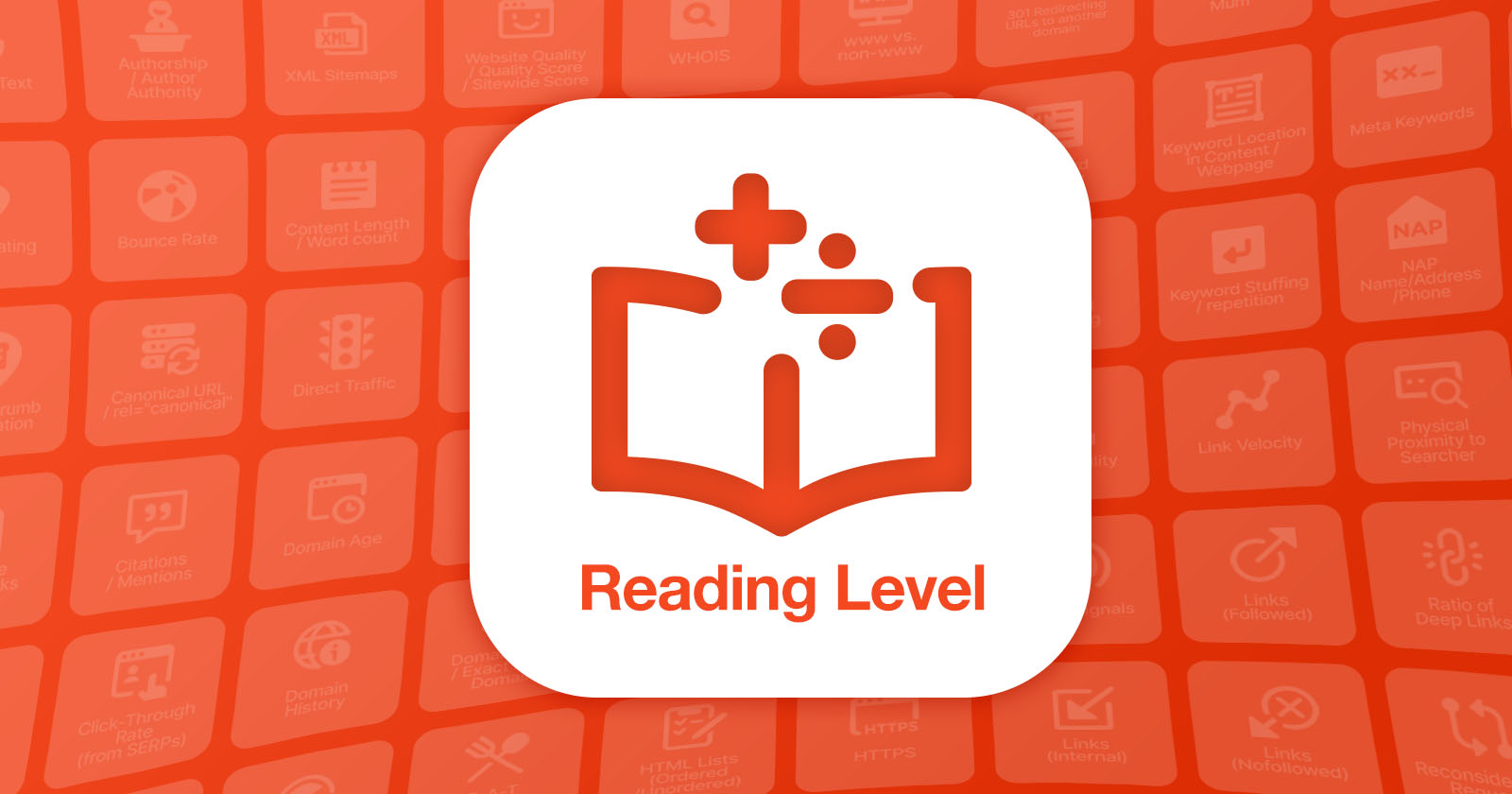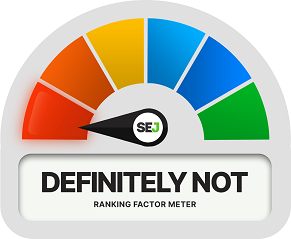
Is Reading Level a Google Ranking Factor?
Every SEO expert knows that content is king. And not all content is created equal.
But does the readability of your content affect how Google ranks you in search results?
There are many misunderstandings about this. But what exactly is readability?
If you’ve already created content, chances are you’ve come across readability tools like the popular WordPress plugin Yoast SEO. These valuable tools evaluate your text and create statistics such as passive voice, paragraph length, subheadings and transitions.
And included in that analysis is Flesch Reading Ease (FRE). FRE is a scale between one and 100, with 100 being the easiest to read and one being incomprehensibly dense.
For example, this play scored 59 on the FRE scale, equivalent to ninth grade reading level. This score takes into account two variables: word length and sentence length. In general, longer words and sentences lower your FRE score.
While content that’s easier to read performs better with visitors, what about search engines? How much do you need to focus on improving readability to rank high?
Let’s take a look.
And if you have questions about other ranking factors, download the Google Ranking Factors: Fact Or Fiction e-book to read the full story.
The claim: reading level as a ranking factor
In 2010, Google added a short-lived “reading level” filter to its advanced search feature. But the idea that readability affects search engine rankings has been around for much longer.
And the rise of Google’s BERT and MUM machine learning models, which aim to understand language and content quality, seems to indicate that this still matters.
But what is the truth? Should you be obsessed with turning all those red and orange circles green on your reading analysis? Will eliminating passive sentences and bringing your vocabulary up to sixth-grade level will catapult your page to the top of search engine results?
The proof against readability as a ranking factor
Despite claims to the contrary, reading level is not factored into your search ranking. Google’s Senior Webmaster Trends Analyst John Mueller confirmed this in a 2018 Google Webmaster Hangout:
“From an SEO perspective, it’s probably not something you need to focus on, in the sense that as far as I know we don’t have these basic algorithms that just count words and try to figure out what the reading level is based on those existing algorithms.
But it’s something you should figure out for your audience.”
FRE is a basic score with only two variables, so this makes sense.
To verify this, Portent conducted a study analyzing the read grade of more than 750,000 pieces of content for 30,000 desktop searches. This study found no correlation between Google search ranking and a page’s reading level.
So SEO pros can just ignore FRE, right?
no
Readability affects the user experience, and this is becoming an increasingly important factor in SEO. When visitors to your website have trouble reading and understanding your content, they are more likely to leave.
Difficult-to-read articles are also much less likely to be directed to inbound links, which is a key ranking factor.
To quote John Mueller’s Hangout again:
“A common example is a medical facility. You want to make medical information available to the general public because you know they are concerned about it. And all of your articles use those medical words that are 20 characters long. Technically everything is fine.
You could calculate the reading level score of that content. You come up with a number.
But it’s not about Google using that reading level rating and saying that’s good or bad. But is it more in line with what people are looking for? And if nobody searches for those long words, nobody will find your content. Or, when they find your content, they’ll say… I don’t know what that means.”
So it seems that while the reading level of your content can have some impact on your ranking, it is not a ranking factor.
Our conclusion: The reading level is not a ranking factor

Reading level, while not a confirmed ranking factor, is crucial to content strategy. Each audience has different preferences in terms of content complexity and readability.
Write for your audience
The key to successful web content is utility. To rank high, you need to show that your website answers a search query better than everyone else.
And the way to do that is to understand your audience.
Suppose you are trying to advertise a company that sells electron microscopes. In that case, you’ll probably get away with a more sophisticated vocabulary than if you were selling mudflaps.
Just be careful not to badmouth your audience, which will alienate them as quickly as $10,000 words.
Writing good content is a skill that every SEO professional should cultivate well. Adjusting your writing for a specific reading level isn’t a ranking factor, but using words that don’t resonate with your audience will always be a problem.
Have more questions about what is and isn’t a ranking factor? Download the Google Ranking Factors: Fact or Fiction e-book.
Featured image: Paulo Bobita/Search Engine Journal
![Ranking Factors: Fact or Fiction? Let's dispel some myths! [Ebook]](https://cdn.searchenginejournal.com/wp-content/uploads/2022/08/rf-ebook-download-banner-62e8c6126ffe8-sej.jpg)














